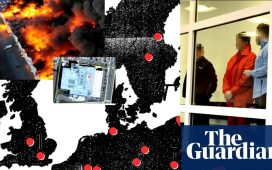Your account of Sir John Saunders’ report on the Manchester Arena bombing refers to a communication breakdown between MI5 and counter-terrorism police (Manchester Arena inquiry: victims’ families respond to final report, 2 March). We have heard before how MI5 jealously guards its secrets, with potentially dangerous consequences.
In its report on the London 7/7 bombings, parliament’s intelligence and security committee described how MI5 adopted Whitehall’s “need to know” principle when it came to sharing information with the police. In his 2017 report on that year’s attacks in London and Manchester, David Anderson, the then independent reviewer of terrorism legislation, referred to (renewed) promises of better data-sharing between MI5 and the police.
I am reminded of an internal Ministry of Defence report quoted in the Chilcot inquiry on Iraq – “the MoD is good at identifying lessons, but less good at learning them”. Intelligence-gathering operations can be a matter of judgment, and of luck. They are surely also a matter of common sense.
Richard Norton-Taylor
London










